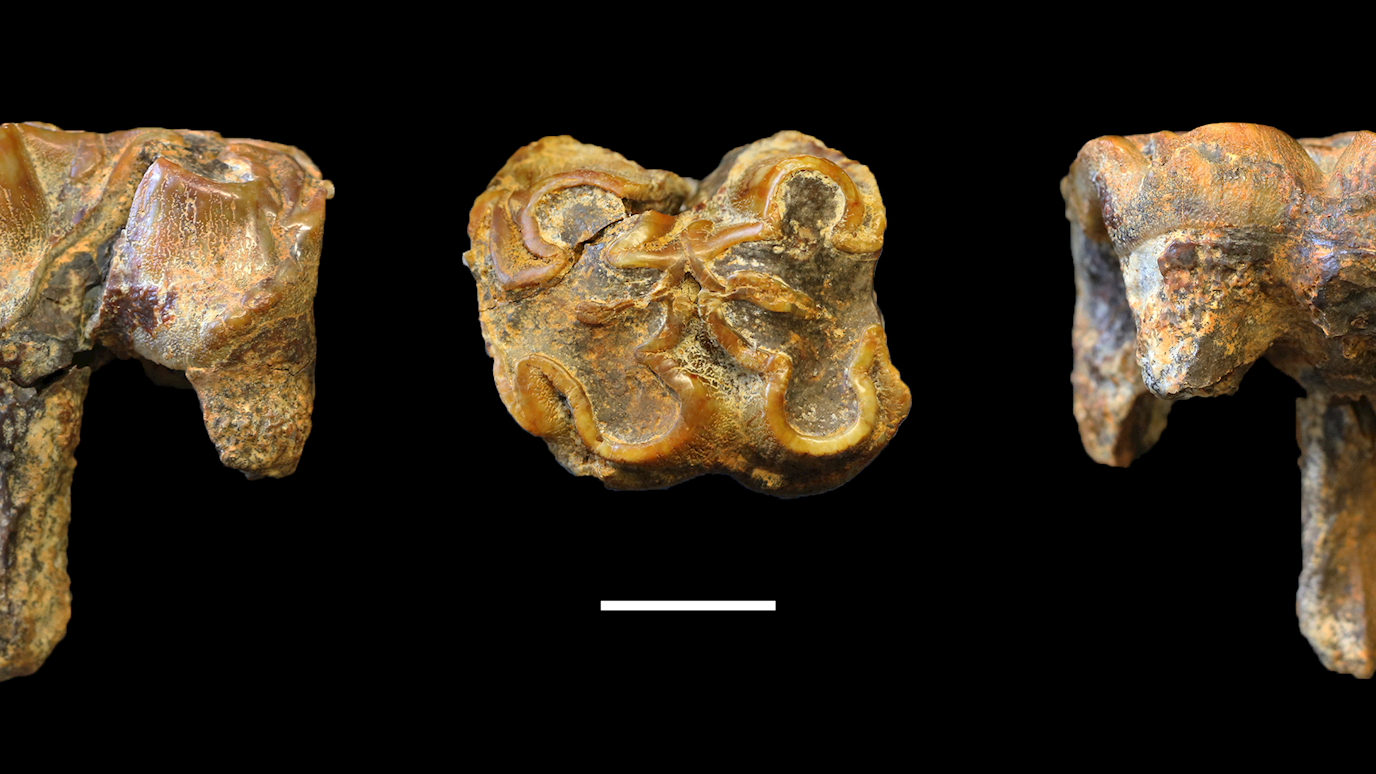A fossil of an extinct species of hippo that is over one million years old has been discovered in Somerset by researchers at Royal Holloway, University of London and the University of Leicester. This finding surpasses the previous oldest record of hippo in the UK by at least 300,000 years.

Hippo fossil. Scale bar = 2cm
Excavations at Westbury Cave in Somerset - led by PhD researcher Neil Adams, formerly of the Department of Geography at Royal Holloway and now at the University of Leicester - uncovered the million-year-old hippo tooth that shows the animal roamed Britain much earlier than previously thought.
In the new study – published in the Journal of Quaternary Science and co-authored by Professors Danielle Schreve and Ian Candy from the Department of Geography at Royal Holloway – the tooth is shown belonged to an extinct species of hippo called Hippopotamus antiquus, which was much larger than the modern African hippo and was even more aquatic than its living relative.
While it is often thought that hippos are exclusively African animals, they were in fact common across Britain during the last interglacial, a period of warm climate around 125,000 years ago.
Speaking about the discovery, Neil Adams, formerly of the Department of Geography, PhD student at the University of Leicester and currently Earth Collections Project Officer at the Oxford University Museum of Natural History, said: “It was very exciting to come across a hippo tooth during our recent excavations at Westbury Cave. It is not only the first record of hippo from the site, but also the first known hippo fossil from any site in Britain older than 750,000 years.
“Erosion caused by the coming and going of ice sheets, as well as the gradual uplift of the land, has removed large parts of the deposits of this age in Britain. Our comparisons with sites across Europe show that Westbury Cave is an important exception and the new hippo dates to a previously unrecognised warm period in the British fossil record.”
Scientists know remarkably little about the fauna, flora and environments in Britain between about 1.8 and 0.8 million years ago, a key period when early humans were beginning to occupy Europe. The new research at Westbury Cave is helping to fill in this gap. It shows that during the interval there were periods warm and wet enough to allow hippos to migrate all the way from the Mediterranean to southern England.
Professor Danielle Schreve, Head of the Department of Geography at Royal Holloway, concluded: “Hippos are not only fabulous animals to find but they also reveal evidence about past climates.
“Many megafaunal species (those over a tonne in weight) are quite broadly tolerant of temperature fluctuations but in contrast, we know modern hippos cannot cope with seasonally frozen water bodies.
“Our research has demonstrated that in the fossil record, hippos are only found in Britain during periods of climatic warmth, when summer temperatures were a little warmer than today but most importantly, winter temperatures were above freezing.”
By examining the European fossil record, the research team show that the Westbury Cave hippo was likely to have lived during a particularly warm period around 1.1 to 1.0 million years ago.
Hippo remains of this age are known from Germany, France and the Netherlands and the new fossil from Somerset represents a previously unknown part of this colonisation of northwest Europe.
This research was supported by the Palaeontological Association and the Natural Environment Research Council (NERC).
























